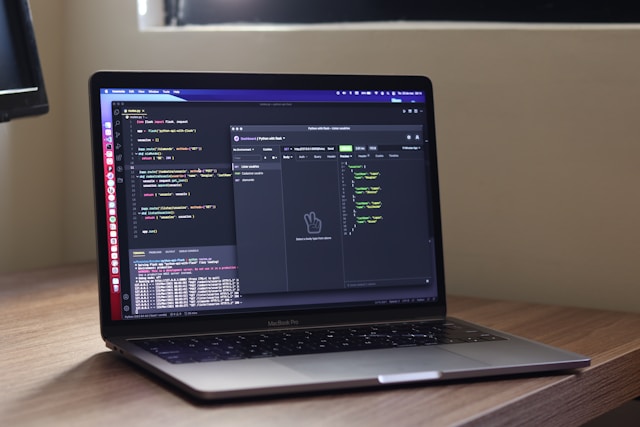In the fast-paced digital world we live in, having a strong online presence is crucial for businesses to thrive. And when it comes to selling products or services, ecommerce app development has become a necessity. With a seamless and user-friendly ecommerce app, businesses can reach a wider audience and increase their sales exponentially. So, if you are a business owner looking to delve into the world of ecommerce app development, it’s natural to have questions about the cost involved. In this article, we will be exploring the factors that influence the cost of ecommerce app development in 2024, as well as the various ecommerce app development services available in the market. So, let’s dive in and find out what it takes to bring your business into the digital forefront!
Factors Affecting Ecommerce Mobile App Development Cost in 2024
The cost of developing an ecommerce mobile app is influenced by various factors. Understanding these factors will help you determine the overall cost of your app development project. Let’s explore them in detail:
- User Interface and Design: A well-designed app with an intuitive user interface requires meticulous planning and implementation. Factors such as complexity, visual elements, and customization significantly impact the development cost.
- Functionality and Features: The desired functionality and features of your app play a crucial role in determining the cost. Advanced features such as push notifications, social media integration, and payment gateways require additional development efforts, contributing to the overall cost.
- Platform Compatibility: Developing an app that runs smoothly on different platforms, including iOS and Android, requires additional development resources, resulting in increased costs.
- Integration with Ecommerce Platforms: If you want your app to integrate seamlessly with your existing ecommerce platform, custom development work may be required. This integration can impact development costs.
- Third-Party Services and APIs: Incorporating third-party services and APIs into your app can enhance its functionality but may increase the development cost. These services often come with licensing fees or require additional development time.
- Customization and Personalization: Tailoring your app to align with your unique business needs and branding requires additional development efforts and can impact the overall development cost.
- Technical Complexity: Factors such as security, scalability, and performance requirements contribute to the technical complexity of an app. Developing and implementing these complex technical aspects may increase the cost.
Now that we have explored the factors affecting ecommerce mobile app development cost, you can make informed decisions about planning and budgeting for your app development project. In the next section, we will delve into the importance of app design and user interface in creating a successful ecommerce mobile app.
App Design and User Interface
The design and user interface of your ecommerce mobile app are crucial factors that can greatly impact the success of your app. Investing in a well-designed app with a user-friendly interface can not only enhance the overall user experience but also affect the cost of development.
When it comes to app design, it is essential to create a visually appealing and intuitive interface that aligns with your brand identity. A visually attractive design can capture users’ attention and create a positive first impression, while an intuitive interface can make navigation smooth and enhance the overall user experience.
Importance of App Design
Effective app design attracts and engages users, increasing the likelihood of their continued usage and satisfaction. A well-designed app can contribute to higher conversion rates and boost your overall business growth.
Additionally, a thoughtful app design considers aspects such as responsive layouts, meaningful color schemes, and intuitive navigation, making it easy for users to find what they need quickly. These design elements can significantly impact user satisfaction and increase the chances of repeat usage.
Enhanced User Interface
Creating a user-friendly interface is crucial to ensure that users can easily navigate through your app and perform desired actions. An intuitive user interface minimizes confusion, reduces friction, and improves overall user satisfaction.
Consider incorporating features like clear call-to-action buttons, simple navigation menus, and visually prominent product images. These elements can contribute to a seamless user experience, enabling customers to effortlessly browse and purchase products from your ecommerce store.
In addition, a well-designed and user-friendly interface can reduce the need for customer support, which can ultimately reduce costs associated with customer inquiries and support personnel.
Overall, investing in app design and user interface is crucial for the success and cost-effectiveness of your ecommerce mobile app. A visually appealing design and user-friendly interface can substantially enhance the overall user experience, increase customer satisfaction, and drive business growth.
| Benefits of App Design and User Interface |
|---|
| 1. Improved user experience and satisfaction |
| 2. Higher conversion rates and increased sales |
| 3. Reduced customer support costs |
| 4. Positive brand image and customer loyalty |
| 5. Enhanced app usability and navigation |
Functionality and Features
The functionality and features of your ecommerce mobile app play a significant role in determining its development cost. The complexity and scope of these features can significantly influence your budget. Let’s explore how different functionality and features can impact the cost of your mobile app:
User Registration and Authentication
Allowing users to create accounts, login, and authenticate themselves on your ecommerce mobile app requires backend development work. The more advanced the authentication methods, such as two-factor authentication or social media login, the higher the development cost.
Product Catalog and Search
Having a comprehensive product catalog with advanced search functionality can enhance the user experience and make it easier for customers to find what they need. However, implementing a complex search algorithm and integrating with a large product database can increase the app’s development cost.
Shopping Cart and Checkout
A seamless shopping cart and checkout process are crucial for converting customers. The complexity of implementing features like saving cart items, applying discounts, and integrating multiple payment gateways can impact the development cost.
Push Notifications
Sending push notifications to users can significantly enhance user engagement and drive repeat purchases. However, implementing push notification functionality can require integration with a third-party service and additional backend development work, which can increase the app’s overall cost.

Product Reviews and Ratings
Allowing customers to leave reviews and ratings for products adds social proof and credibility to your ecommerce mobile app. Implementing this functionality requires backend development work and integrating with a database, which can add to the development cost.
Order Tracking and Delivery
Providing real-time order tracking and delivery updates can enhance the customer experience. However, integrating with a logistics service or developing a custom tracking system can add complexity to the app’s development and increase the cost.
Social Media Integration
Integrating your ecommerce mobile app with social media platforms can enable users to share products and interact with your brand. However, integrating with multiple social media APIs and implementing features like social login can impact the development cost.
Analytics and Reporting
Having analytics and reporting features in your ecommerce mobile app can provide valuable insights into user behavior and sales performance. Developing and integrating these features requires backend development work and may require integration with third-party analytics tools or APIs, which can affect the overall cost.
Localization and Internationalization
If you plan to target customers across different countries or regions, implementing localization and internationalization features in your app can be essential. This may involve translating content, adapting to different currencies and payment methods, and complying with country-specific regulations, which can add to the development cost.
Integrations with Ecommerce Platforms
If your ecommerce mobile app needs to integrate with an existing ecommerce platform, such as Shopify or WooCommerce, additional development work will be required. This integration can impact the overall cost of your app development project.
Impact of Functionality and Features on Development Cost
| Functionality | Impact on Development Cost |
|---|---|
| User Registration and Authentication | Medium |
| Product Catalog and Search | High |
| Shopping Cart and Checkout | High |
| Push Notifications | Medium |
| Product Reviews and Ratings | Medium |
| Order Tracking and Delivery | High |
| Social Media Integration | Medium |
| Analytics and Reporting | Medium |
| Localization and Internationalization | High |
| Integrations with Ecommerce Platforms | Medium |
Keep in mind that while adding more functionality and features can enhance the user experience and functionality of your mobile app, they can also increase the development cost. Consider prioritizing the essential features and functionalities that align with your business goals and budget.
Platform Compatibility
When developing an ecommerce mobile app, one crucial aspect to consider is platform compatibility. It refers to ensuring that your app works seamlessly on various platforms, such as iOS and Android. However, this compatibility comes at a cost.
Developing an app that is compatible with multiple platforms requires additional time, effort, and resources. The app needs to be designed and developed to function optimally on different operating systems and screen sizes. This can increase the overall development cost.
Let’s take a closer look at how platform compatibility affects the budget:
- Development Effort: Creating an app that works well on iOS and Android requires coding and testing for both platforms. Developers need to write separate code for each platform, making sure that the app functions smoothly on each of them.
- User Experience: Each platform has its own design guidelines and user interface conventions. To provide a consistent and intuitive user experience, developers may need to customize the app’s interface and functionalities for each platform.
- Maintenance and Updates: With multiple platforms, maintaining and updating the app becomes more complex. Each platform may have its own updates and version releases, requiring regular app updates to ensure compatibility.
Considering these factors, it becomes evident that platform compatibility can significantly impact the overall development cost of your ecommerce mobile app. However, it is essential to prioritize platform compatibility to reach a broader audience and provide a seamless user experience.
To give you a clearer understanding of the potential cost implications, let’s take a look at a sample breakdown of the development cost based on platform compatibility:
| Development Cost Factors | Estimated Cost |
|---|---|
| Initial Development Effort | $10,000 – $100,000 |
| Platform-specific Customizations | $2,000 – $25,000 |
| Maintenance and Updates | $1,000 – $10,000 (per year) |
Note: The above cost estimates are approximate and may vary depending on the complexity of your app and the specific development agency you choose.
By understanding the impact of platform compatibility on the development cost, you can make informed decisions while planning and budgeting for your ecommerce mobile app. It’s crucial to work closely with an experienced app development agency that can guide you through the process and help you optimize the cost while ensuring a high-quality app.
Integration with Ecommerce Platforms
If you want your mobile app to seamlessly integrate with your existing ecommerce platform, it may require additional development work. This integration between your app and ecommerce platform is crucial for a smooth and efficient user experience. However, it does impact the overall development cost of your mobile app.
Integrating your mobile app with your ecommerce platform allows for real-time synchronization of product inventory, pricing, and customer data. This ensures that your customers have the most up-to-date information when browsing and making purchases through the app.
Furthermore, seamless integration enables features such as synchronized shopping carts, order tracking, and personalized recommendations. These features enhance the user experience and increase customer satisfaction, ultimately driving more sales for your online store.
However, integrating an ecommerce platform with a mobile app requires technical expertise to ensure compatibility and efficient data exchange between the two systems. This additional development work may result in an increased cost for your app development project.
While the integration process may add to the overall cost, it is important to consider the long-term benefits it provides. Having a well-integrated mobile app and ecommerce platform can streamline your operations, improve customer engagement, and boost your online sales.
Third-Party Services and APIs
When developing your ecommerce mobile app, you have the opportunity to leverage third-party services and APIs that can enhance its functionality. These services provide pre-built features and integrations that can save you time and effort in developing custom solutions from scratch. However, it’s important to consider the cost implications of integrating these services into your app.
Third-party services offer a wide range of capabilities, such as payment gateways, social media integrations, and analytics tools. By utilizing these services, you can provide a seamless user experience and access valuable data to optimize your app’s performance. However, it’s essential to carefully evaluate the cost of these services to ensure they align with your budget.

APIs, or Application Programming Interfaces, allow different software components to communicate and share data. They enable your app to connect with external services and retrieve information or perform specific functions. While APIs provide valuable functionality, integrating them into your app may come with additional costs.
Before incorporating third-party services and APIs into your ecommerce mobile app, consider the following cost factors:
- Subscription or usage fees: Some third-party services operate on a subscription basis, requiring you to pay a monthly or annual fee. Others may charge based on usage, such as the number of transactions or API calls.
- Integration complexity: Integrating third-party services and APIs may require additional development work, increasing the overall cost of your app. The complexity of the integration can vary depending on the service and your app’s specific requirements.
- Data transfer and storage costs: If the third-party service involves data transfer or storage, you may incur additional costs based on the volume of data processed or stored.
It’s important to carefully assess the value and necessity of each third-party service or API before integrating it into your app. Consider your app’s core functionality and prioritize services that directly contribute to your business goals. Additionally, consult with your app development team to understand the development effort and cost associated with each integration.
Example:
| Third-Party Service/API | Subscription/Usage Fees | Integration Complexity | Data Transfer/Storage Costs |
|---|---|---|---|
| Stripe Payment Gateway | Subscription-based | Low | Transaction-based |
| Facebook Login API | Free | Medium | N/A |
| Google Analytics | Free (with premium options) | Low | Data usage-based |
The table above provides an example of different third-party services and APIs along with their associated cost factors. It’s crucial to conduct thorough research and evaluate the benefits and costs of each integration to make informed decisions for your app development project.
By carefully considering the cost implications of utilizing third-party services and APIs, you can strike the right balance between functionality and budget when developing your ecommerce mobile app.
Customization and Personalization
When developing your ecommerce mobile app, the level of customization and personalization you require can have a significant impact on the overall development cost. Tailoring the app to your specific needs and preferences involves additional work and resources, which may increase the budget you need to allocate for the project.
Customization refers to making unique modifications and adjustments to the app’s design, features, and functionalities. This allows you to create a mobile app that aligns perfectly with your brand identity and offers a seamless user experience. Personalization, on the other hand, involves tailoring the app’s content and user interface to match individual users’ preferences and behaviors.
Both customization and personalization play crucial roles in enhancing user engagement, improving user satisfaction, and driving sales. However, it’s important to carefully consider the level of customization and personalization you genuinely need for your ecommerce mobile app to ensure that you’re investing wisely.
| Factors | Impact on Development Cost |
|---|---|
| Extensive customization and personalization | Higher development cost due to additional design and development work |
| Limited customization and personalization | Lower development cost with fewer customizations and pre-built templates |
By carefully assessing your specific business requirements and user expectations, you can strike the right balance between customization, personalization, and cost. This way, you can create a highly customized and personalized ecommerce mobile app that aligns with your brand vision while keeping your development budget under control.
Technical Complexity
The development of an ecommerce mobile app involves various technical complexities that can significantly impact the overall cost of the project. These complexities revolve around factors such as security, scalability, and performance, which require careful consideration during app development.
Security: Ensuring the security of user data and transactions is paramount in ecommerce mobile app development. The implementation of robust security measures, such as encryption and secure authentication protocols, adds a layer of complexity to the development process. This may require additional time and expertise, contributing to the overall cost.
Scalability: As your ecommerce business grows, it is crucial to have an app that can handle increasing user traffic and demand. Developing a scalable app requires advanced architectural planning and optimization techniques to ensure smooth performance even during peak usage. This scalability adds complexity to the development process and can impact the cost.
Performance: Users expect fast-loading times and seamless navigation in mobile apps. Achieving optimal performance in an ecommerce app necessitates meticulous optimization of code, efficient database design, and integration with caching mechanisms. These optimizations can introduce technical complexities that may influence the development cost.
| Challenges | Impact on Development Cost |
|---|---|
| Implementing robust security measures | Increased development time and expertise |
| Designing for scalability | Advanced architectural planning and optimization |
| Optimizing performance | Code optimization and integration with caching mechanisms |
Overcoming these technical complexities requires a skilled development team with expertise in handling the challenges specific to ecommerce mobile app development. It is essential to allocate resources and budget for the additional time, effort, and expertise required to address these complexities and ensure the successful development of your app.
Hiring App Development Services
When it comes to building your ecommerce mobile app, hiring the right app development services can make all the difference. The cost of hiring an app development agency or team should be a crucial consideration in your budget planning. Let’s explore the different options available and their cost implications.

1. In-house Development Team
If you have a skilled development team in-house, you may choose to utilize their expertise to build your ecommerce mobile app. This can be a cost-effective option since you won’t have to pay extra for external services. However, it’s important to consider the potential limitations of your team’s capacity and experience.
2. Freelancers
Hiring freelancers can be a flexible and cost-efficient way to develop your app. You can find skilled app developers on freelancing platforms who can work on your project on a per-task or per-hour basis. While this option may save you money, it’s crucial to thoroughly vet freelancers and ensure they have a proven track record of delivering quality work.
3. App Development Agencies
App development agencies specialize in building high-quality mobile apps tailored to your specific requirements. They have a team of experts who can handle all aspects of the development process. While working with an agency may require a larger investment upfront, their experience and expertise can provide you with a reliable and efficient outcome.
4. Offshore Development
Offshore development involves hiring a team located in a different country with lower labor costs. This option can be cost-effective, but it also comes with potential challenges such as language barriers, communication issues, and different time zones. It’s important to carefully evaluate the benefits and drawbacks before pursuing offshore development.
Each hiring option has its own advantages and considerations. It’s crucial to assess your specific needs, budget, and timeline before making a decision. By carefully choosing the right app development services for your ecommerce mobile app, you can ensure a smooth and successful development process.
Conclusion
After exploring the various factors that impact the cost of developing an ecommerce mobile app, you are now equipped to make informed decisions about budgeting for your online store’s mobile presence. By understanding the complexity involved in design, functionality, platform compatibility, integration with ecommerce platforms, and the use of third-party services and APIs, you can plan your investment wisely.
To get started on developing a cost-effective ecommerce mobile app for your business, consider contacting Hyperlinks Media hosting services today at (281) 693-5372. Their team of experts can guide you through the development process and help you achieve your mobile app goals.
Remember, a well-designed and user-friendly ecommerce mobile app can enhance the overall shopping experience for your customers and drive more sales. So, don’t overlook the importance of investing in a mobile presence that aligns with your business objectives. Happy app development!










